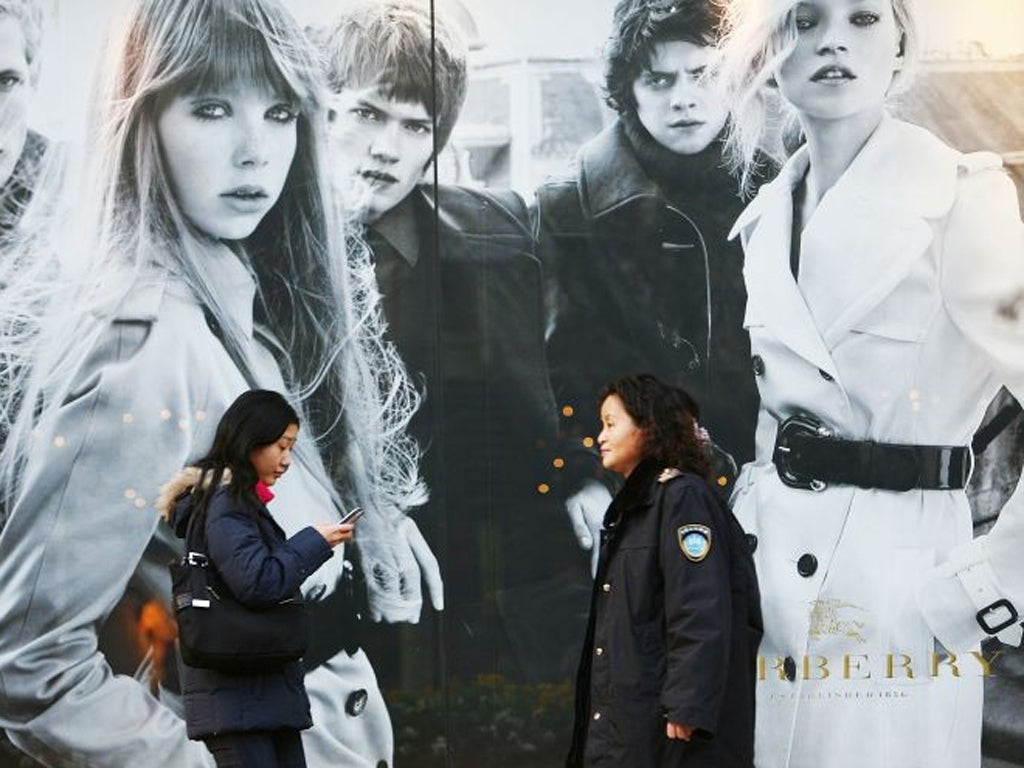Investment Insider: Why the most expensive brands thrive in tough times

Why are brands, in particular exclusive or luxury brands, largely resilient to economic downturns? Because wealthy consumers generally do not stop spending even in the teeth of a recession.
Truth is, brand-conscious shoppers are buying a sense of superiority that has been cultivated through clever marketing. Note how Mulberry has achieved this sense of supremacy by ensuring that its handbags are closely identified with celebrities such as Kate Moss and Alexa Chung.
That is not to say luxury brands won't be knocked back every now and again. In the case of Mulberry, its shares fell sharply after it confessed that retail sales were behind expectations. However, that is the nature of the "luxury" beast; they tend to be highly rated, and any hint of failing to match market expectations can have an impact on the share price.
brands have an air of exclusivity that will always find buyers who are willing to part with their cash. Consequently, brands should see sustained growth as millions of new consumers from emerging markets develop a taste for the finer things in life, despite the global recession.
In other words, while the mass affluent of the west were the main buyers of luxury items after the war, the next crop of mass-affluent buyers should come from the emerging markets. Right now, the growth markets are in Shanghai, Mumbai and Dubai.
Consider Burberry, which has made a conscious effort to target the growing wealth of developing market consumers. Asia Pacific now accounts for over a third of group sales. However, gunning for high-growth markets is not without its perils, given that expectations have a tendency to race ahead of results. In the case of Burberry, when sales growth slowed from the high twenties to the low teens, the market took fright and the shares plunged.
However, Burberry has recovered from setbacks before. During 2008/9, reported profits fell from £200m to £175m and the shares collapsed from 566p to 160p, but then went on to expand tenfold within three years as the business recovered strongly.
Superdry, which is owned by SuperGroup, is a brand that is regularly linked with celebrities such as David Beckham and Leonardo DiCaprio. By ensuring that celebrities are associated with their expensive products, luxury goods makers are emitting a signal that their goods are not for everyone. However, a brand on its own is never enough to sustain a business over the long term – capable management is essential too. SuperGroup may have grown too much, too quickly, which resulted in unwanted growing pains.
Other strong brands in the UK market include the jewellery maker Theo Fennell, and clothing companies Ted Baker and French Connection. The soft furnishing company Laura Ashley, which was rescued from receivers in 1998, is another quoted company with a strong brand. It has demonstrated that the brand, established some 60 years ago, has stood the test of time.
Get a free fractional share worth up to £100.
Capital at risk.
Terms and conditions apply.
ADVERTISEMENT
Get a free fractional share worth up to £100.
Capital at risk.
Terms and conditions apply.
ADVERTISEMENT
As investors, we should bear in mind that luxury brands possess a unique quality that makes them stand out in good times and bad: namely, pricing power. But we should also know that while a strong brand name can work wonders, it does not always guarantee corporate prosperity.
David Kuo is a director at fool.co.uk
Join our commenting forum
Join thought-provoking conversations, follow other Independent readers and see their replies
Comments
Bookmark popover
Removed from bookmarks